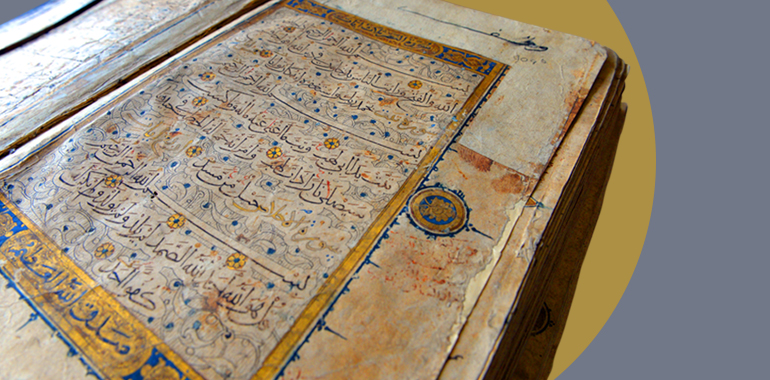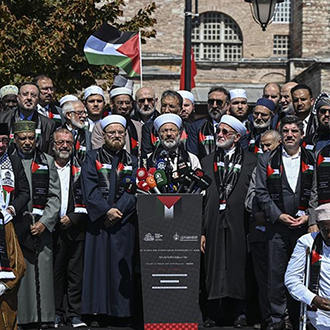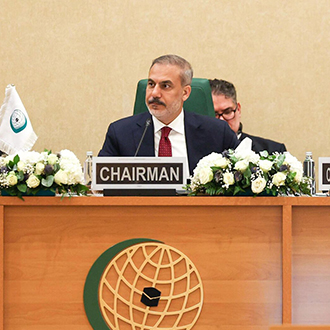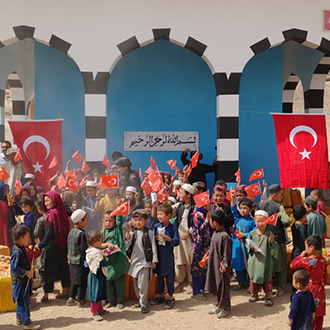p>Tawakkul is a concept we frequently use in daily life, yet often fail to fully grasp or embody as we should. As a religious term, tawakkul means “a person relying solely on Allah, surrendering to Him, and considering Him the guarantor of their provision and affairs”. In this sense, tawakkul also reflects a recognition of one’s own weakness and dependence on another (Raghib, al-Mufradat, art. “w-k-l”; Ibn Manzur, Lisan al-‘Arab, art. “w-k-l”). No matter how strong a person may be or how intensely they may desire a certain outcome, they do not always attain what they seek. For there exists a Creator who brings everything into being, who grants abundantly to whom He wills and sparingly to whom He wills (Isra, 17:30). And indeed, human beings are in need of Allah (Fatir, 35:15). It is also beneficial here to recall that one of the exalted names of Allah is “al-Wakil”. Derived from the same root as tawakkul, the term wakil means “the one to whom a matter is entrusted.” In theological terms, it refers to “the being who is fully reliable and sufficient in overseeing the affairs of all creation” (Bekir Topaloglu, DIA, art. “Wakil.”). In the Qur’an, Allah the Almighty is described with this attribute in verses such as: “Allah (alone) is sufficient (as an aid) for us and (He) is the best Protector.” (Al-i ‘Imran, 3:173) and “And sufficient is your Lord as a Guardian.” (Isra, 17:65) These verses express the reality that Allah is the most trustworthy being to whom one can entrust their matters. Indeed, Allah the Almighty is the One who aids us, protects us, and is the only true being in whom we can place our trust in all affairs (Maturidi, Ta’wilat, 7/82). Whoever places their trust in Allah has no need of any other (Talaq, 65:3). In that case, a person who may face a wide variety of challenges in life at any moment holds in their hands a great strength: trust in Allah. It is this strength that enables one to stand firm without faltering, to walk into the future without losing energy or enthusiasm. A believer who is aware of this strength and lives accordingly will reach a level of spiritual maturity. This is because such a person, as a Muslim, has fulfilled their responsibilities and made the necessary effort. In the end, they have entrusted their affairs to Allah and placed their trust in Him. As expressed in the verse: “Say, ‘Nothing will ever befall us except what Allah has destined for us. He is our Protector.’ So in Allah let the believers put their trust.” (Tawbah, 9:51), they come to realize that whatever outcome occurs is what has been divinely ordained for them. From this perspective, tawakkul is a virtue intricately connected to many noble qualities, ranging from faith to submission, from patience to gratitude, from contentment to acceptance. At the same time, tawakkul serves as a shield that protects a person from numerous negative traits, such as weakness in faith, lack of surrender, impatience, ingratitude, greed, and envy. As expressed in the supplication of the Prophet Musa (as), “I entrust my affairs to Allah. Surely Allah is All-Seeing of all (His) servants.” (Ghafir, 40:44), and in the patience of the Prophet Ya‘qub—who, upon being separated from his beloved son Yusuf, declared: “I complain of my anguish and sorrow only to Allah” (Yusuf, 12:86)—tawakkul is the act of entrusting the outcome of our affairs to Allah and placing our trust and surrender in Him. Tawakkul is likewise a virtue that delivers a person from weakness of faith and deficiency in gratitude. It protects one from becoming the type of individual who laments in the face of calamities and, when granted blessings, claims them as his own, falling into selfishness and miserliness (Ma‘arij, 70:20–21). In this regard, tawakkul is directly tied to firm belief in Allah. For the essence of tawakkul lies in one’s surrender to the will and decree of Allah in all circumstances, and in contentment with whatever comes from Him (Mustafa Cagrici, DIA, art. “Tawakkul.”). Tawakkul is not about laziness under the pretext of “Whatever is meant to happen will happen,” nor is it passive resignation to every hardship without seeking a solution or a way out. As the Prophet (saw) instructed a companion who asked how to practice tawakkul: “Tie your camel, and then place your trust in Allah.” (Tirmidhi, Qiyamah, 60) This clearly shows that expecting a desired outcome without taking the necessary precautions or fulfilling one’s responsibilities is not a sound understanding of tawakkul. It is meaningless to expect a harvest without sowing seeds into the soil or to await results without exerting effort. As stated in the Qur’an: “Each person will only have what they endeavored towards.” (Najm, 53:39) This verse emphasizes that striving is essential to attaining one’s goals. Alongside this, the Prophet’s (saw) statement that Allah provides sustenance to those who truly practice tawakkul, just as He provides for the birds (Tirmidhi, Zuhd, 33), further illustrates the relationship between effort, tawakkul, and sustenance. Nonetheless, despite this truth, we are witnessing an increasing number of people who, without labor or effort, seek to attain results through shortcuts. It is evident that such an approach does not align with the concept of tawakkul as defined by the Qur’an and sunnah. Moreover, this mindset of pursuing results without exertion can easily lead a person to error. It may erode one’s sensitivity to what is halal and haram, and drive one to covet the rights of others. This attitude can trap a person in the grip of negative traits such as selfishness, greed, insatiability, and envy. It may stir an obsession with gaining more and hoarding wealth. Yet Islam does not forbid earning through work, becoming strong, or achieving financial success. On the contrary, it encourages the establishment of a balance between this world and the Hereafter, without sacrificing one for the other. What matters more than wealth or abundance is earning through honest labor—through halal means. It is recognizing the value of what one has, showing gratitude for it, and being able to share it with those in need. Rather than possessing large amounts of wealth obtained without effort or tainted with haram, being content with little that is halal and pure is of greater value. It is about working, striving, and sweating. It is about praying and expecting the outcome from Allah the Almighty. Moreover, when things do not go as hoped, it is a time to exercise patience; when blessings come, it is a time to offer gratitude.
TAWAKKUL: FAITH, DEED, SUBMISSION









